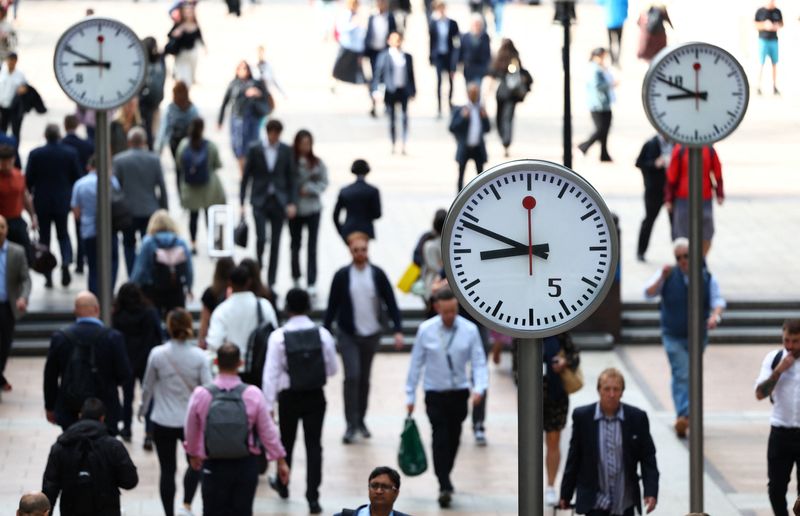LONDON (Reuters) - Britain's Office for Budget Responsibility revised down its estimate of the country's medium-term potential growth rate to 1.6% from 1.8%, as an ageing population works shorter hours on average and productivity growth slows.
"The impact of these downward revisions on the medium-term level of GDP are only partly offset by higher migration, stronger business investment, lower energy prices, and the policy measures which further boost labour supply and business investment," the OBR said.
The budget watchdog also forecast Britain's tax burden would rise to 37.7% by the 2028-29 tax year, the highest since World War Two, despite tax cuts announced by finance minister Jeremy Hunt in a mid-year fiscal update earlier on Wednesday.
High inflation would reduce the real-terms value of spending on public services by 19.1 billion pounds ($23.8 billion) by 2027-28, it added.
Hunt would meet his fiscal target of having debt falling as a share of the economy in five years' time with 13 billion pounds of headroom by 2028-29, half the typical headroom but twice as much as in March's forecasts.

The OBR said this increase was "mainly thanks to the rolling nature of the rule giving him an extra year to get there".
($1 = 0.8025 pounds)